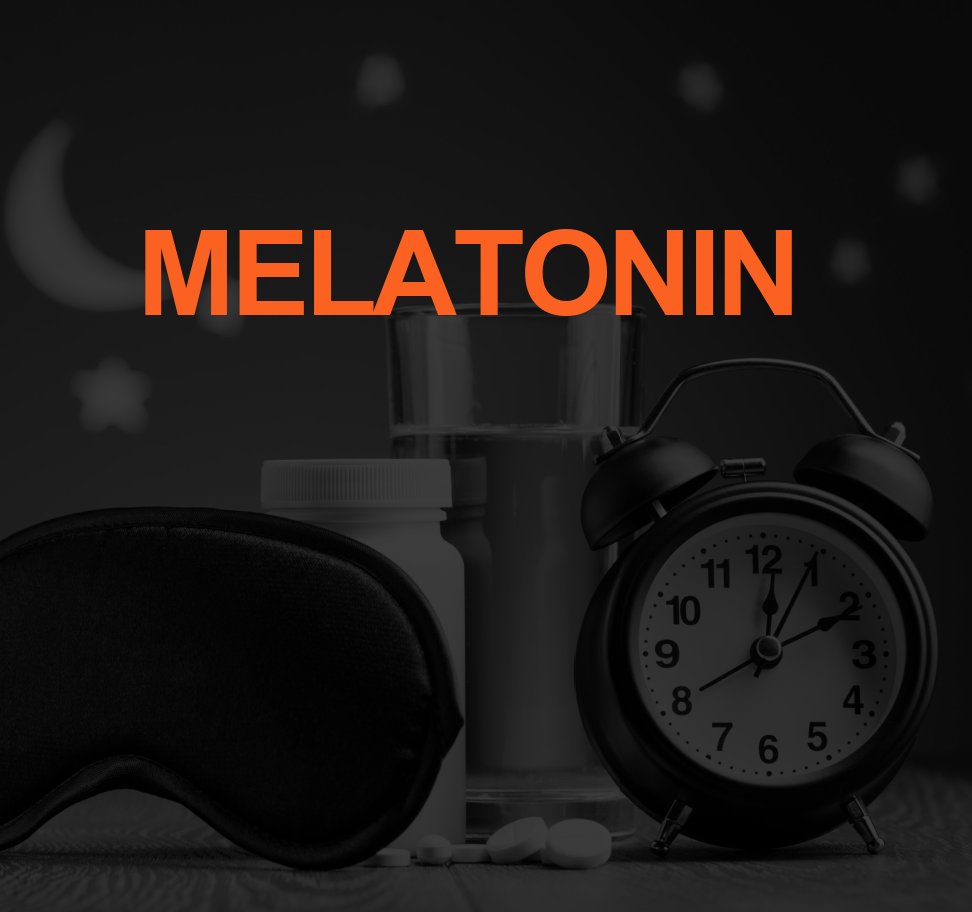Melatonin is both a hormone found in the body and a supplement that can be taken orally. The human body produces melatonin deep inside the brain and there are ways to support its production and rhythm. Melatonin supplements can be found in most pharmacies and grocery stores these days, for both adults and kids. Such supplements have their place and time, but are they necessary or even safe for day-to-day (or night-to-night) life? Do they work? Let’s find out more so that personal training clients can be best advised and coached regarding their sleep habits.
Melatonin – The Hormone
In natural form, melatonin is secreted from the pineal gland each evening, sort of like a dinner bell. It lets the body know it is time to shift into nighttime activities by receiving signals about changes in light. Along with adenosine, this sleep neurotransmitter contributes to the sleep pressure experience that is felt when it’s time for bed and we can’t fight sleep.
High melatonin + High adenosine = Sleepy
Melatonin release is also affected by genetics, species, and phase of life. During certain phases of life, such as teenage years, the hormone is released later than in adult years, which is why teens tend toward being night owls. In nocturnal animals, melatonin is released during the morning instead of evening; it simply signals the body and brain toward darkness or light, which shifts the body into daytime or night mode accordingly.
Going to bed at the same time every night (creating darkness) is helpful for melatonin to stay on schedule. This is why staying up late on the weekend can make a Sunday early bedtime difficult. Sleep hormone release gets shifted later and doesn’t shift back until the night after an earlier rising time, which reduces the signal to sleep.
Melatonin as a Supplement
With a regular sleep routine, using melatonin as a supplement is generally unnecessary, although it may be beneficial in a few cases. For circadian rhythm disorders, when traveling across time zones (especially when going west), for night shift workers, and with the elderly population.
Melatonin supplements have been found to vary between having -83% to +478% of the labeled content in them and some have other substances such as serotonin added into the formula. What’s more, by and large the amount of this sleep substance added to supplements far exceeds what is made naturally in the body. Your body produces the equivalent of 300 micrograms, while supplements can have as much as 5 milligrams or more! That’s more than 16 times what can be naturally produced, likely explaining some side effects and dependency issues.
As with all supplements and drugs, use caution and do research. It is important to work with a physician when consuming sleep supplements to ensure the brand being consumed is of adequate quality.
While supplementing with melatonin has been largely deemed a safe practice, it is not without side effects for some people. In particular, taking too high a dose has been reported to result in nightmares and then grogginess in the morning.
Melatonin supplements have their place and time, but usually, melatonin release is best left up to the body, which means supporting its natural rhythm. Supplementing melatonin might affect the strength of natural production.
Supporting our Clients
Thanks to sleep research we know how melatonin is affected by choices and behavior.
- Keep a three-hour window between exercise and bedtime
- Turn off screens one hour before bedtime (prevents blue light from suppressing melatonin). Use blue light-blocking glasses if there is some reason you cannot keep this rule.
- Commit to a regular bedtime (even on the weekend) to ensure a consistent release of melatonin each night
- Maintain a regular dinner and breakfast time, this supports the circadian rhythm
Whether or not to supplement with melatonin is one of the main questions associated with sleep hygience. Understanding the mechanisms behind its natural production can help people make choices to support sleep and waking life.
[sc name=”functional” ][/sc]



